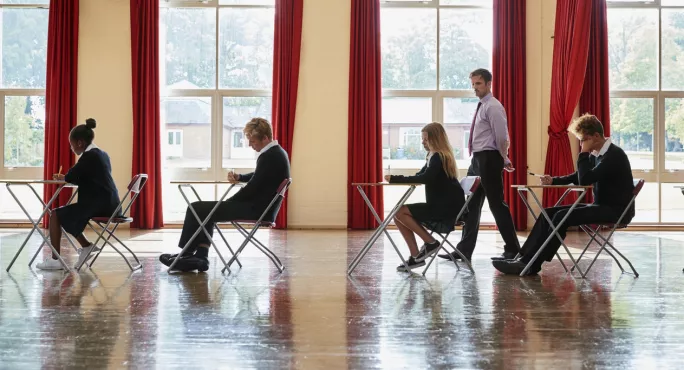This year’s exams are likely to widen the disadvantage gap because of the impact of Covid, a headteachers’ leader has warned.
Geoff Barton, general secretary of the Association of School and College Leaders (ASCL), has said that this is a likely outcome of GCSEs taking place this year.
His comments come as Ofqual’s chief regulator told the ASCL conference today (12 March) that it would not be possible to award differential exam grades, which take Covid impact into account for students.
Dr Jo Saxton told heads that the exams regulator had heard calls for regional grading or individual Covid uplift for students who have been worst hit by disruption to their learning during the pandemic.
She said she understood these demands, but such a system would not be possible.
In a speech to heads today, Dr Saxton said: “Qualifications will only serve young people, like those I talked to yesterday, in the long term if they give a reliable indication of what the student knows and understands.
“I’ve met students at college at the moment on what they call ‘Covid grades’. Some of the students I talked to last week are realising that their apprenticeship is further away than they thought because they have more maths to do than their grades had indicated.
“As a society, we won’t recover from this tragic pandemic if students receive grades that just aren’t based on what they know and can do,” she said.
Students sitting GCSEs and A levels this summer will have some support in place to mitigate the impacts of the pandemic.
Ofqual previously announced that grade boundaries will be set roughly between 2019 pre-pandemic levels and boundaries in 2021, when teacher assessment was used to set grades.
Mr Barton told Tes that he thought that neither Ofqual nor exam boards knew exactly how this summer’s exam results would land.
But he said that he was concerned that the disadvantage gap would widen because of the Covid impact.
Mr Barton said: “What we have seen from Covid is that it has affected the disadvantaged more significantly than the advantaged, and there is no great surprise in that.
“If you are from a disadvantaged background, when you were in lockdown you didn’t have access to books, you didn’t have data, you didn’t have the internet, you will be going into the exams at a disadvantage no matter how much people have tried to help you.
“Then it might be that, at your school, you have been affected by Covid, or your cohort has or your teacher has.
“Now that is bound to have an impact. The question is, can that be addressed through the exam system and, if so, how do you start making amends for individual children taking into account if someone has or hasn’t been affected.
“Because you might have missed two weeks of learning but, frankly, you have been at a house where you did have wifi, you did have all of those resources and the child sitting opposite didn’t have that…it becomes incredibly difficult to use an exams system to make everything fair and I think people delude themselves if they say we can do…I think we will see an increase in the gap between the advantaged and the disadvantaged.”




